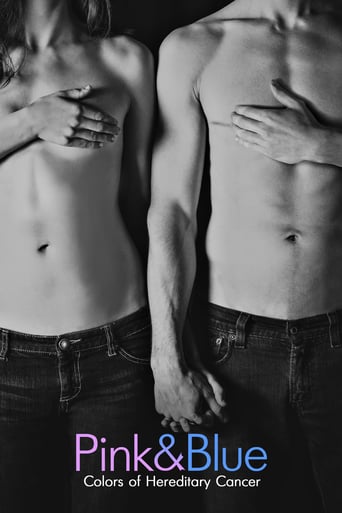marylruh
On December 1, I attended the viewing of the movie, Pink & Blue, here in Chicago and I am glad that I did. I was eager to see the film partially because Marla and Louis, one of the featured couples, are my cousins. They had shared their BRCA "journey" with me since it began. It is courageous of them, and all the patients in the film, to reveal such personal stories, but they are what makes the film so effective. Also, as a nurse I worked with breast cancer patients for many years, and was involved in educating them about genetic counseling. I was wondering if this film could be used by clinicians. I feel that Pink & Blue does an excellent job on many fronts. It presents real life men and women and allows them to verbalize the questions, fears and decisions they face related to genetic BRCA cancers. They share their compelling stories with remarkable honesty. The movie graphically demonstrates the far reaching impact that this genetic mutation has on extended families, both for those members who are positive for the gene, and those who are not. The scientific information presented in the film is presented in short segments that are not overwhelming. While factual, it can easily be understood by non-medical viewers. The physicians in the movie are personable and clearly experts in their field who have a very caring connection to their patients.Pink & Blue is a terrific vehicle to educate the public and medical professionals about BRCA related cancers. I am pleased to hear that it is now available on I-Tunes and on Google Play. Hopefully it will now reach a wider audience. Perhaps that the producer could also consider making parts of it available in a shorter format for use in clinical settings. Alan Blassberg and all those involved in this production have done a great service in creating such a professional and engaging documentary about a very important subject.
allisonjay
I saw this movie with a friend who knew little about hereditary breast, prostate, and ovarian cancer. He left the movie understanding the fundamentals regarding BRCA related cancers. There was a good balance between technical medical terminology and explanations by scientists and physicians, and patients.We both were moved by the powerful stories of the men and women who shared their journeys throughout the film. If knowledge is power, this movie certainly empowers individuals facing tough health choices in their desire to have better, healthier lives in the face of family history of cancer. Perhaps my favorite portion of the movie was Marla Rohana and her husband in her discussion of her choice not to have reconstruction, and her husband fully supported her health care decisions. The support of family members was truly inspirational and evidence that cancer impacts not only the patient but their entire families and that together with understanding and support we can face this stronger together.
